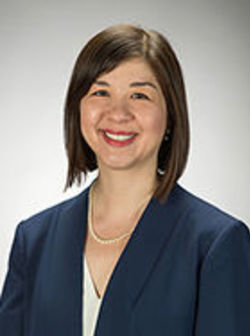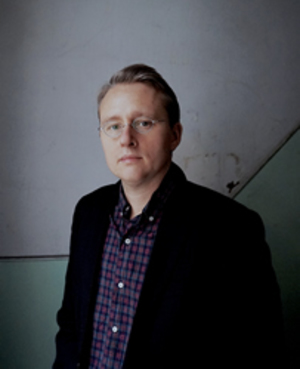Sustainability is an interdisciplinary subject, demanding communication across borders and an ability to consider multiple perspectives. Each year the Sustainability Minor offers course development grants to professors across the university. Starting a new course can be challenging, particularly one spanning across disciplines. In addition to researching and constructing a syllabus, there is often time spent learning from and building relationships with external experts.

Professors Roy Scranton and Joanna Want are each developing writing courses for Fall 2020. Both professors make the case that effective writing is particularly important for sustainability professionals. As Scranton says, “Anyone working in science or government or business is going to have to produce documents.” In many cases these documents have to be persuasive and clearly communicate technical information.
This persuasive element is a key focus in Professor Want’s community-based learning (CBL) writing and rhetoric course for freshmen, tentatively called “Writing About the Environment in St. Joseph County.” The writing and rhetoric discipline centers upon crafting persuasive texts for diverse audiences. Yet Want highlights another goal of her new course. “Writing can also be a way of closely observing the world, of asking hard questions, of reflecting on one’s relationship to others and the natural world.”
While many students come to Notre Dame with a love of the campus, fewer students feel as enamored by the surrounding area. Developing a CBL course involves the logistical challenges of coordinating with community groups and extra scheduling, alongside pushing students outside of their campus comfort zone. Want says, “My hope is that by engaging with the natural world through observation and writing, reading local authors, and studying local environmental activism, students will come away from the course with a greater appreciation of the local environs and a desire to protect it for future generations.” She hopes to spend the summer building partnerships with local organizations such as the Saint Joseph County Parks, and to develop contemplative exercises for first year students, “to design a course that offers students multiple avenues to experience and advocate for the environment in St. Joseph County using writing as a vehicle.”
Meanwhile, Professor Scranton hopes his new English course, “Writing in the Anthropocene,” will serve as the flagship course for the University’s new Environmental Humanities Initiative that he’ll be building in collaboration with the Sustainability program. Scranton explains why this program and his new course are important to him: “I think climate change is the single biggest issue facing the world today. And it’s affecting all of us in countless ways. It’s urgent and important that we pay more attention to it.” Addressing climate change, ecological degradation and other issues of our current epoch reaches across disciplines. There’s a need to understand and communicate the science, yet there’s also a political and cultural dimension.

Scranton explains several “exciting challenges” his creative nonfiction course will address. Translating the technical science behind climate change is essential, but no small feat. Students will learn from the writing of journalists specializing in this translation. Likewise, the class will experiment with different narrative techniques and elements of local and global perspectives. Using the examples of a single home flooding or one distant glacier melting, Scranton depicts the challenges of trying to convey a global problem by telling individual stories. “Every living being will be affected” by climate change, but there will be differing abilities to adapt and thus differing consequences. Lastly, as Want hopes to push her students beyond the writing to the contemplation, so Scranton sees another benefit from studying the Anthropocene through writing.
Writing “can also help open up other ways of thinking about the technical and scientific issues that sustainability students would be interested in…writing is a kind of thinking. Writing is a way of organizing our sense of the world, just like science is,” he says. Looking at climate change and biodiversity collapse from a different lens that one’s used to and exploring how others have approached the topics, provide more tools with which to confront a massive problem.
Today, sustainability is a challenge and opportunity that demands perseverance and innovation. At Notre Dame all students have a chance to arm themselves with a mighty range of skills and insights to tackle life’s many challenges. For sustainability students, each new class provides a new lens, a different set of tools that can be used to confront the challenge of our era.
More News from the Minor in Sustainability:
Course Development Grants to Doctoral Students Support Deeper Sustainability Studies
Solar Energy Improves Quality of Life in Adjuntas, Puerto Rico
Minor in Sustainability Courses